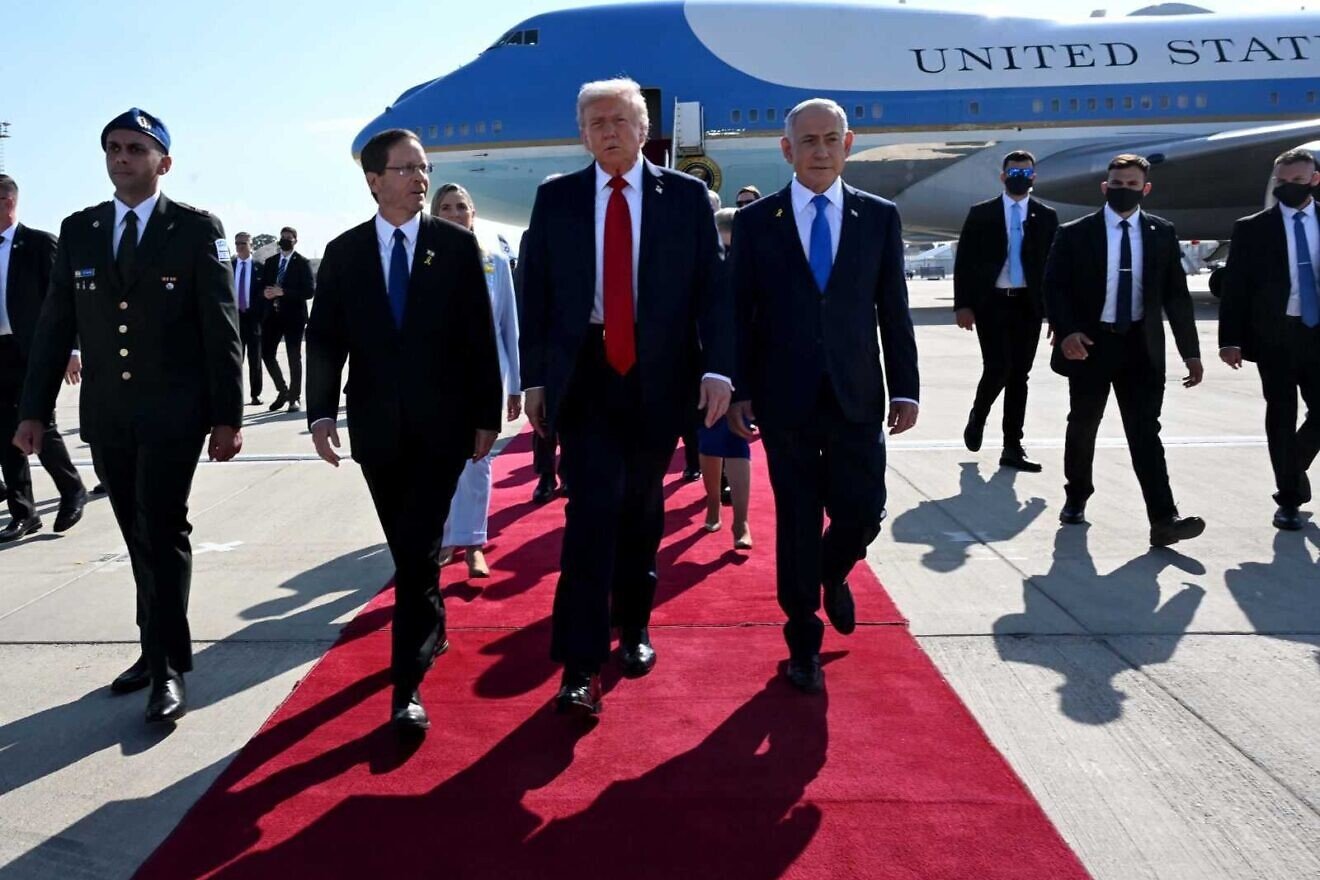Ideological reasons for the praise of Trump and denial of Netanyahu’s merits
While the U.S. president deserves all the praise he gets, Israel's prime minister deserves just as much, if not more.

It is hard to escape the impression that the outpouring of praise for U.S. President Donald Trump over his newborn peace plan stems solely from admiration, or perhaps from pacifist approval. It is generally said that the credit for peace belongs entirely to him—indeed, that he forced Israeli Prime Minister Benjamin Netanyahu into it.
But Israel’s prime minister has been the constant target of ideological opposition, political obsession and insults. The opportunity to continue denying his achievements by praising Trump is, therefore, all too convenient. For many, “peace” and “Netanyahu” are two words that simply cannot go together.
In reality, of course, Trump deserves all the praise he gets; but Netanyahu deserves just as much, if not more. He is putting at stake the future of his country, his own image and the conclusion of a statesman’s biography that has endured the terrible upheaval of Oct. 7, 2023 — leading into a traumatic peace process that involves the release of murderous terrorists with thousands of deaths on their hands, and the withdrawal of the army even while Hamas has not yet laid down its arms.
Yet everything proceeds gradually, conditioned on respect for the agreements—and the exchange is enormous: it removes from Hamas’s hands its main asset, namely the hostages.
Here we must note a key point in favor of the main road that led to the agreement: the military pressure on Gaza City, which everyone feared. Netanyahu’s determination to continue, despite the advice of Trump’s special envoy Steve Witkoff, who was satisfied with a partial deal, proved essential. Netanyahu insisted on bringing back all the kidnapped—living and dead—at once.
He has followed difficult, impossible paths since the time of Trump’s predecessor Joe Biden, when the ban on entering Rafah blocked the pursuit of Hamas military leader Yahya Sinwar—who was eventually killed—and when the prohibition along the Philadelphi Corridor instead enabled the capture and closure of the supply routes for men and weapons from Egypt.
Netanyahu defied Biden back then; he said, “We will fight with our fingernails and our teeth” even in the face of U.S. arms embargoes.
In confronting Hezbollah’s attack—the final embodiment of the Shi’ite front, with its 200,000 missiles forming a barrier against any aggression—Netanyahu entered Lebanon, ordered the mission to track down its leaders, and eliminated Hezbollah chief Hassan Nasrallah. Facing the Iranian enterprise, Netanyahu stood alone, against everyone’s grim predictions of chaos. But the fighter jets flew to Tehran, and only later did Trump join the operation.
Later, the strike on Doha finally made Qatar understand that Israel would no longer tolerate its false role as “mediator,” and that it had better pressure Hamas. Trump played his part: Netanyahu’s apologies were a means to consolidate a coalition determined to squeeze Hamas.
And now to Trump: far from having forced Netanyahu to bend to some Biden-style peace plan (leaving Hamas at the gates), the president aligned himself with Israel’s interests—understanding that they were his own. He threatened Hamas with destruction; he committed to freeing the hostages; he urged Israel to maintain military pressure; he helped, rather than scolded, in the distribution of humanitarian aid.
Together with Netanyahu, he dealt the fatal blow to Iran’s nuclear program that threatened the entire world. He stood with Netanyahu when the latter demanded all the hostages and rejected a partial deal. Trump, through his strength, pushed Qatar, Turkey, Egypt and five other Muslim states to back the agreement—but it is Israel’s Middle Eastern posture, saying “don’t mess with me,” that convinced them of the prudence of a great future peace.
Excluded from that peace are the countries and terrorist groups tied to Iran—and also Europe, if it does not wake up.
Perhaps, with the Nobel Peace Prize in sight next year, Trump will realize that Ukrainian President Volodymyr Zelensky’s reasons are also his—and part of America’s historic role as peacemaker in the world.
No comments:
Post a Comment